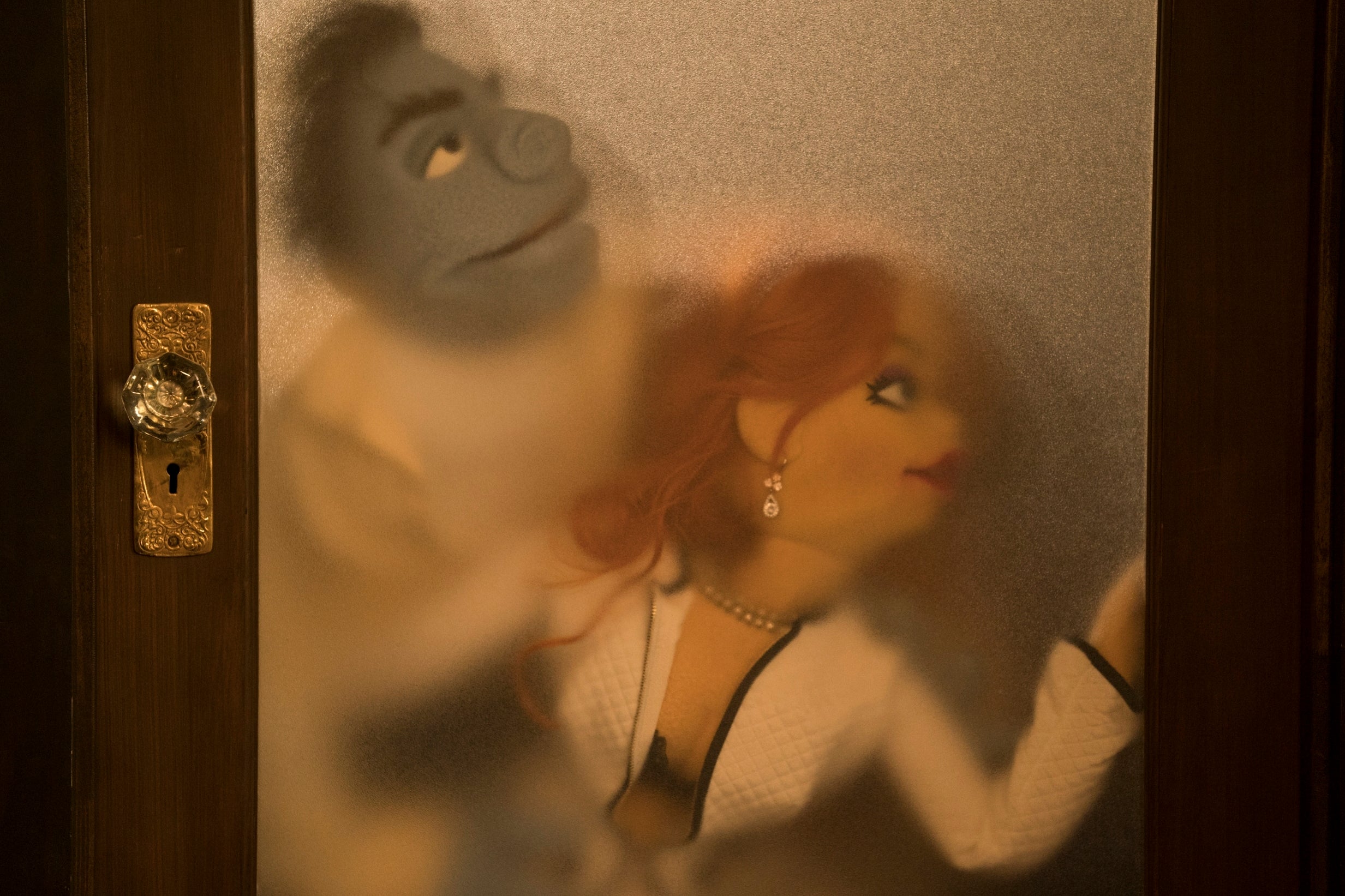No one understands the legacy of Jim Henson more deeply than his son Brian. Born in 1963, the third child of Jim and Jane Henson, Brian Henson immersed himself in his father’s world growing up: he was one of the wide-eyed sprouts who learned shapes and letters in Sesame Street, and was later responsible for creating the Muppets’ very first penguin character.
And, on those longs days on set, he became privy to the secret edges of his father’s humour – so rarely glimpsed by the outside world. “As a kid, I would watch my dad working,” he explains. “And I particularly enjoyed what they would do when the cameras weren’t running, when they were goofing around off-camera and it got quite blue and quite off-colour – and, hilariously funny, in my opinion.”
In Brian’s eyes, his new film, The Happytime Murders, builds on those memories. It’s an R-rated noir parody whose centrepiece consists of a puppet ejaculating for what seems like an eternity.
The film’s explicitness mortified the creators of Sesame Street, who sued the film’s distributors over its tagline (“All Sesame. No Street.”), but it’s an attitude that reflects Jim’s early work in the 1960s, which was not only intended for an adult audience, but was fairly shocking material for the time.
The earliest iteration of Kermit, a kind of proto-Kermit, which admittedly looked more like a felt oven glove than a puppet, starred in a series of commercials for Wilkins Coffee. With each sketch lasting roughly eight seconds, the format would see proto-Kermit pitch Wilkins coffee to a puppet companion.
The offer was comply or die, and a refusal would always end in brutal punishment: electrocution, bludgeoning, trampling by a herd of wild horses. The ads proved popular and, over the ensuing years, Jim produced about 180 different takes on the idea.
As Brian explains: “Sesame Street was the first thing that he did that was specifically for children. That was when he did Saturday Night Live, just to really reassert to the world that his work is not just of kids. And he always had an irreverent, subversive edge to his work that works really nicely when you’re entertaining an adult audience.”
Indeed, Jim was hesitant to put aside his darker sense of humour for Sesame Street and, in some ways, his worst fears came true. The show was a huge hit, while his “Land of Gortch” sketches on Saturday Night Live failed to reassert his original voice – the SNL writers were tasked with writing the jokes, but reviled seeing their work performed by felt.
At the same time, his attempts to pitch a show titled The Muppet Show: Sex and Violence to US networks were met with a series of closed doors. It was only when the British TV company Associated Television stepped in, and the Sex and Violence tag was dropped, that The Muppet Show as we know it now finally made to air. By that point, Jim had been forced to compromise, and the family-friendly creatures we know now came into full force.

As for Brian: he found his voice during his twenties, when a customary bid for independence from his parents’ world saw him take his own strides as a puppeteer, acting as principal performer on the Audrey II puppet in Little Shop of Horrors (1986) and both voicing and operating the Jack Pumpkinhead puppet in Return to Oz (1985).
However, Brian continued to contribute to The Jim Henson Company (he operated Hoggle in 1986’s Labyrinth) and, when his father died in 1990, he was named President, Chairman, and Chief Executive Officer of the business.
He shouldered the burden impressively, directing two of the most cherished entries into the Muppet film series: The Muppet Christmas Carol (1992) and Muppet Treasure Island (1996).
Flash-forward to 2006, and Brian first staged the live show titled Puppet Up!, in which felt performers would act out varies salacious prompts from the audience.
Although he admits to initially being “truly terrified” at how audiences would react to creatures so reminiscent of his father’s creations, he found that, in fact, “everyone really enjoyed it, and were delighted by it, and thought it was wonderful”.
“What I realised is, they really delighted in very R-rated, raunchy content,” he says. “And we found a way to do it that we thought was really funny and really delightful, so off of that show I decided that I wanted to do something scripted in this vain.”
Out of that desire, Henson Alternative was born, the banner under which The Happytime Murders was produced. And a banner under which he hopes he can revive a few of his father’s dreams.
While Henson Alternative will remain only as “a spice, just like when my dad did Saturday Night Live”, he admits, “It’s fun to do something adult. I like that we do some stuff that’s specifically for kids, some stuff that’s for kids and their parents, some stuff that’s for the whole family and some stuff that’s just for adults... That’s the way we’ll continue.”
The Happytime Murders is out now.







